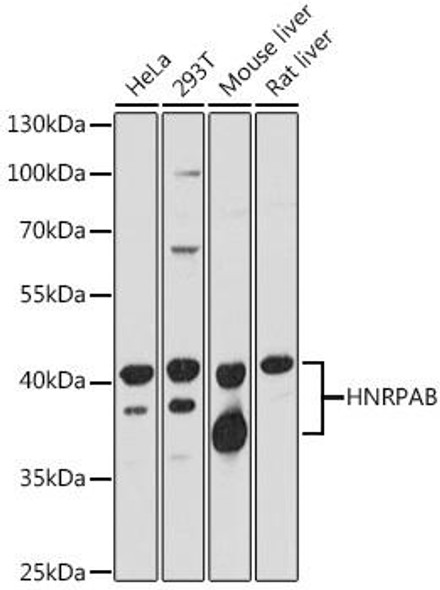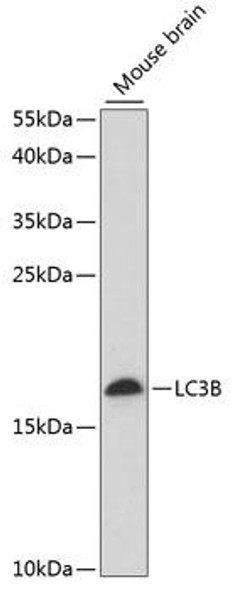Description
PRKAR1A Polyclonal Antibody (CAB19334)
The PRKAR1A Polyclonal Antibody is a valuable tool for researchers studying the PRKAR1A protein, which plays a crucial role in cell signaling pathways related to cancer development and progression. This antibody, produced in rabbits, is highly specific to human samples and has been validated for use in Western blot experiments. By targeting the PRKAR1A protein, researchers can accurately detect and analyze its expression in various cell types, making it ideal for investigations in oncology and molecular biology.PRKAR1A, also known as cAMP-dependent protein kinase type I-alpha regulatory subunit, is a key player in regulating cell growth, proliferation, and apoptosis.
Dysregulation of PRKAR1A has been linked to various cancers, making it a promising target for therapeutic interventions. By studying the function of PRKAR1A, researchers can gain important insights into the mechanisms underlying cancer progression and identify potential drug targets for anti-cancer therapies.Overall, the PRKAR1A Polyclonal Antibody offers researchers a reliable tool for investigating the role of PRKAR1A in cancer biology and provides valuable information for the development of novel treatment strategies for cancer patients.
| Product Name: | PRKAR1A Polyclonal Antibody |
| Product Code: | CAB19334 |
| Reactivity: | Human, Mouse |
| Applications: | Western blotting, Immunofluorescence |
| Host Species: | Rabbit |
| Purification Method: | Affinity purification |
| Isotype: | IgG |
| Reactivity: | Human, Mouse |
| Tested Applications: | WB, IF/ICC, ELISA |
| Key Applications: | Western blotting, Immunofluorescence |
| Recommended Dilution: | WB 1:500-1:2000, IF/ICC 1:50-1:200 |
| Storage Buffer: | Store at -20°C. Avoid freeze / thaw cycles.Buffer: PBS with 0.01% thimerosal, 50% glycerol, pH7.3. |
| Cellular Location: | Cell membrane |
cAMP is a signaling molecule important for a variety of cellular functions. cAMP exerts its effects by activating the cAMP-dependent protein kinase, which transduces the signal through phosphorylation of different target proteins. The inactive kinase holoenzyme is a tetramer composed of two regulatory and two catalytic subunits. cAMP causes the dissociation of the inactive holoenzyme into a dimer of regulatory subunits bound to four cAMP and two free monomeric catalytic subunits. Four different regulatory subunits and three catalytic subunits have been identified in humans. This gene encodes one of the regulatory subunits. This protein was found to be a tissue-specific extinguisher that down-regulates the expression of seven liver genes in hepatoma x fibroblast hybrids. Mutations in this gene cause Carney complex (CNC). This gene can fuse to the RET protooncogene by gene rearrangement and form the thyroid tumor-specific chimeric oncogene known as PTC2. A nonconventional nuclear localization sequence (NLS) has been found for this protein which suggests a role in DNA replication via the protein serving as a nuclear transport protein for the second subunit of the Replication Factor C (RFC40). Several alternatively spliced transcript variants encoding two different isoforms have been observed.
| Immunogen: | A synthetic peptide corresponding to a sequence within amino acids 300-386 of human PRKAR1A (NP_002725.1). |
| Sequence: | AAVLQ RRSEN EEFVE VGRLG PSDYF GEIAL LMNRP RAATV VARGP LKCVK LDRPR FERVL GPCSD ILKRN IQQYN SFVSL SV |
| Synonyms: | CAR, CNC, CNC1, PKR1, TSE1, ADOHR, PPNAD1, PRKAR1, ACRDYS1 |
| Calculated MW: | 43kDa |
| Observed MW: | Refer to figures |






